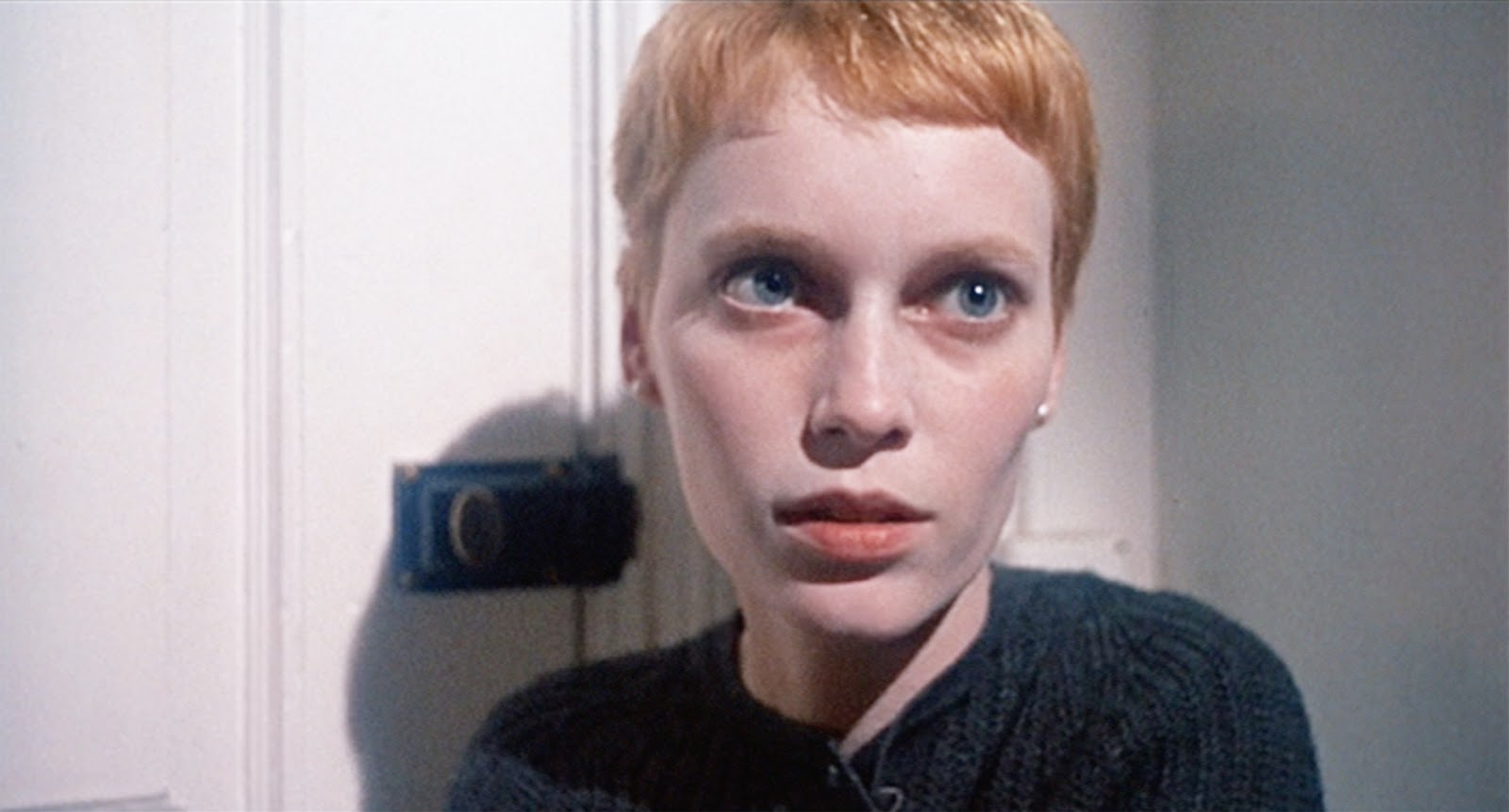
Ari Aster burst into scene this past decade, dropping two instant hits in Hereditary and Midsommar and establishing himself as one of the most intriguing and sought-out directors in the business today. Both of his A24-backed arthouse horror films seem to have paved the way to an alternative way of storytelling in the genre, banking on atmospheric dread and slow burn narratives to create thrills. The timing for these two movies couldn’t have been better for a watered-down industry reigned by cheap jump scares and creatively bankrupt releases.
Aster is a self-declared cinephile who has always been vocal about his influences, admiration and most inspiring films, being a devout student of the history of the medium. From the spiritual works of Ingmar Bergman to the religious odysseys of Andrei Tarkovsky and the crooked character studies of Martin Scorsese, Ari Aster has never shied away from giving the old-timers their due credit. But as one of the leading figures in the horror genre, no films have made a more profound impact on the young but brilliant filmmaker than the following ten.
1. Rosemary’s Baby (1969)
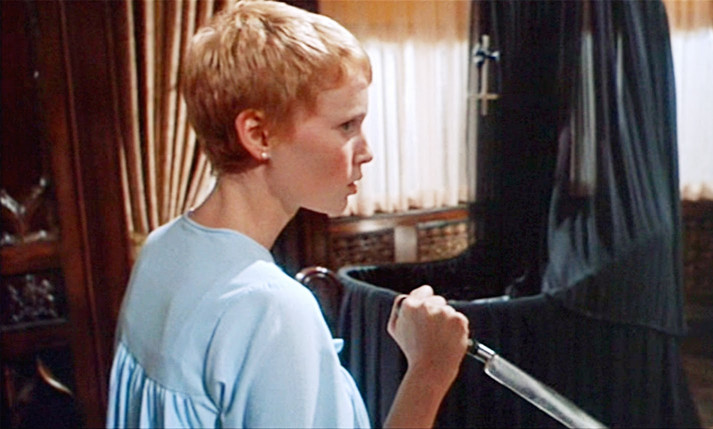
You would be hard-pressed to find a more influential horror movie than this Polanski classic, a film so ingrained in the cinematic conscience that it still serves as blueprint to some of the most acclaimed modern directors in the genre like Jordan Peele, Alex Garland and Ari Aster. Mia Farrow portrays Rosemary, a newly wedded pregnant woman who moves to a New York apartment with his husband. The way this movie operates is through masterful build-up, foreshadowing Rosemary’s isolation and growing hopelessness as she senses something is wrong with her unborn child. There are no easy jump scares or unnecessary plot twists, just a nightmarish crescendo that comes to represent the societal fears of the time, the pressures of urban environment and the uncertainties of pregnancy and marriage.
Ari Aster is a big fan of the director, and what strikes him the most about this movie is how it plays with the genre brilliantly, “upending conventions while honoring them”. His film, Hereditary, also features a hidden demonic cult, and works similarly in that it evokes terror through teasing rather than showing. Fifty years and countless of wannabe imitators later, Rosemary’s Baby has stood the test of time as top-notch psychological terror.
2. Possession (1981)
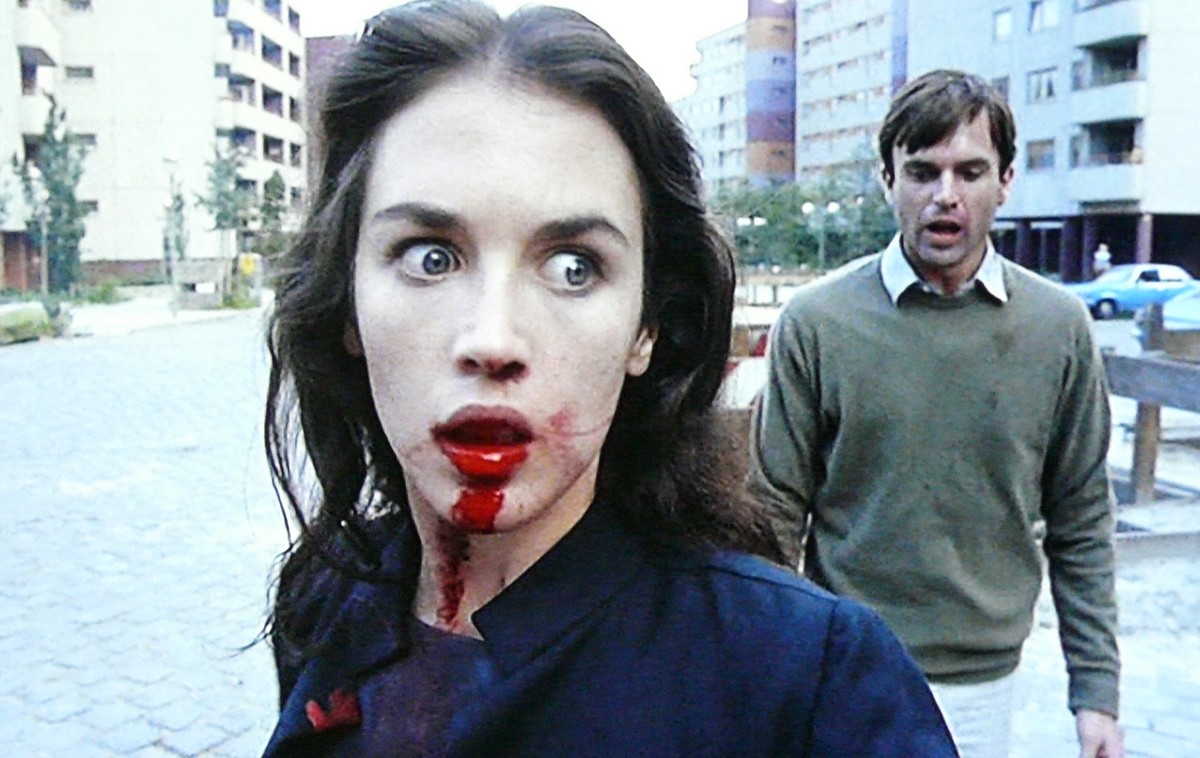
Possession is a cryptic descend into chaos, as unconventional in a narrative sense as it is inherently intuitive. This movie directed by the Polish legend Andrzej Zulawski is a completely gut-wrenching watch that tells the story of a husband who starts to follow his wife, who has recently left the family without notice. In a sea of confusion, mistrust and impotence, new suspicions come to light with growingly deranged twists and an underlying sense of dread that never lets go.
It’s easy to thread together this atmospheric nightmare with Ari Aster’s own Hereditary, as two similarly dark and captivating family affairs. The director is a big fan of the film, especially in how radically emotional the storytelling is, but not at the expense of the climax of the movie. He hails it as one of the great movies about divorce and the “agony of romantic disentanglement”, two prominent underlying themes that dictate the downer story. There is something to be said too about the nihilistic commentary that Zulawski makes when it comes to the post-modern malaise and urban decay portrayed in the greyish, war-torn Berlin that serves as its setting.
3. Cure (1998)
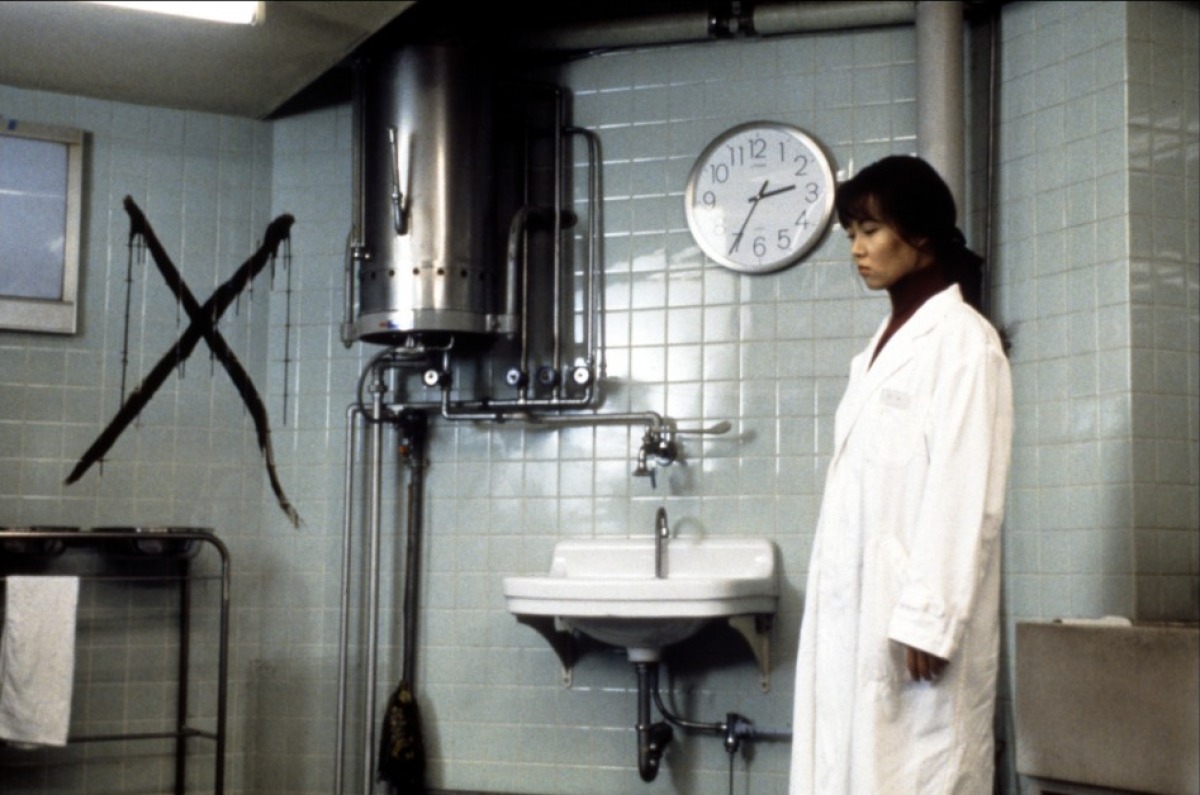
Kiyoshi Kurosawa’s bleak atmospheric thriller is another one of Ari Aster’s favorite horror movies. This Japanese film follows a cat-and-mouse game between a private detective and a serial killer in a masterclass on psychological warfare. It is a film of the most subdued nature, a dreadful nightmare slowly crawling into your mind, where moments of silence and muted suspense prove to be as frightening as any loud jump scare. Cure doesn’t even attempt to conceal the identity of its culprit as we learn that pretty soon into the film. The real mystery comes at the slow realization of how he operates, as we briefly catch glimpses of his stone-cold demeanour and razor-sharp execution putting his victims in a state of hypnotic trance.
The biggest strength of this movie is how the focus progressively shifts from the labyrinthine plot to the psychological toll that it takes on the man tasked to solve it. Not unlike other all-time thrillers such as Se7en and Memories of Murder, the murders take a back seat to the evolving dynamic between the hunter and the hunted, in this case Watanabe and the serial killer.
4. Carrie (1976)
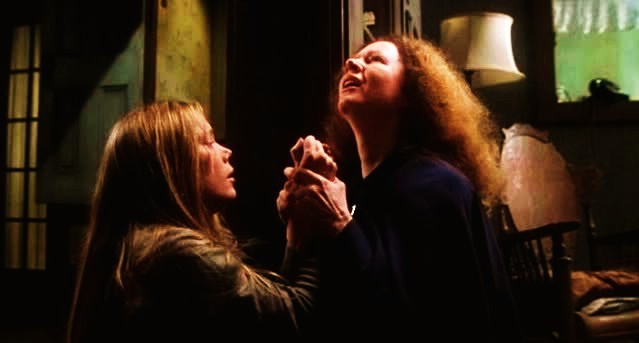
It’s safe to say that this classic Stephen King adaptation traumatized a young Ari Aster as a kid. As the director recalls, it took him 15 years to summon the courage to come back to it, noting that “its cruelty feels unfathomable and its images, potentially life-ruining”. This Brian De Palma shocker became one of the staples in the teen-horror boom of the 1970’s, telling the story of social pariah Carrie White. The movie has an unforgettable climax scene where Carrie is crowned as her prom’s queen only to be showered in pig’s blood in a nasty prank plotted by his high school peers. What follows is how Carrie uses her telekinetic powers to exact vengeance upon her bullies.
Ari Aster cites the great Piper Laurie (Carrie’s mum) chasing Sissy Spacek (Carrie) around the house with a knife as an image that he couldn’t get out of his head for ages, claiming that it has come back to him in so many ways and still shows up on nightmares to this day. He admits being surprised at how profoundly sympathetic and campy he found the movie upon rewatch, where the tragic and comedic undertones of Carrie’s journey had a bigger effect on him.
5. Blue Velvet (1986)
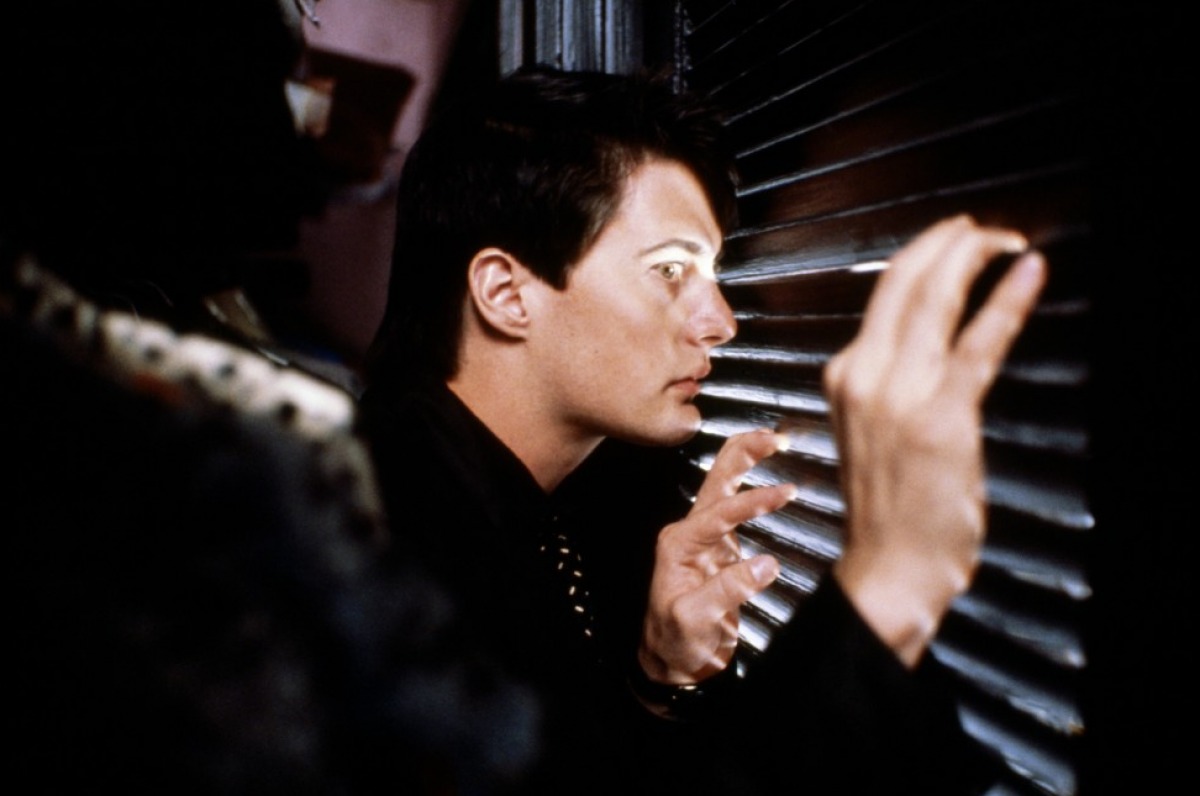
This David Lynch surrealist classic is the ultimate subversion on the idealized portrayal of 1950’s suburban America that is so recurrent in film and other media. The innocence and purity of two happy-going teenagers is shattered to pieces when they start to investigate a nightclub singer who’s embroiled in a convoluted and nightmarish mystery involving a sadistic group of criminals. Behind the peaceful neighborhoods and colorful surface of North Carolina, a rotten corruption lies hidden in the depths of human nature, embodied by Dennis Hopper’s incredible performance as the insane Frank Booth.
Blue Velvet is not your standard type of horror, it is provocative, uncanny and bordering the insufferable, but it relies on Lynch’s impressionistic style and dreamlike mood to approach the viewer at an intuitive and almost subconscious level. To pin it down as one genre would be a disservice to the film’s blending influences of neo-noir, avant-garde and neorealism, not to mention as a meta commentary against cultural desensitization of violence and sex in post-modern society. Aster recalls hating this movie at first, then was obsessed about it throughout the years to the point where it became one of his favorite films, and he recently calls it the “greatest thing ever”.